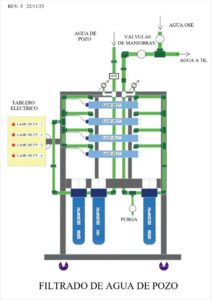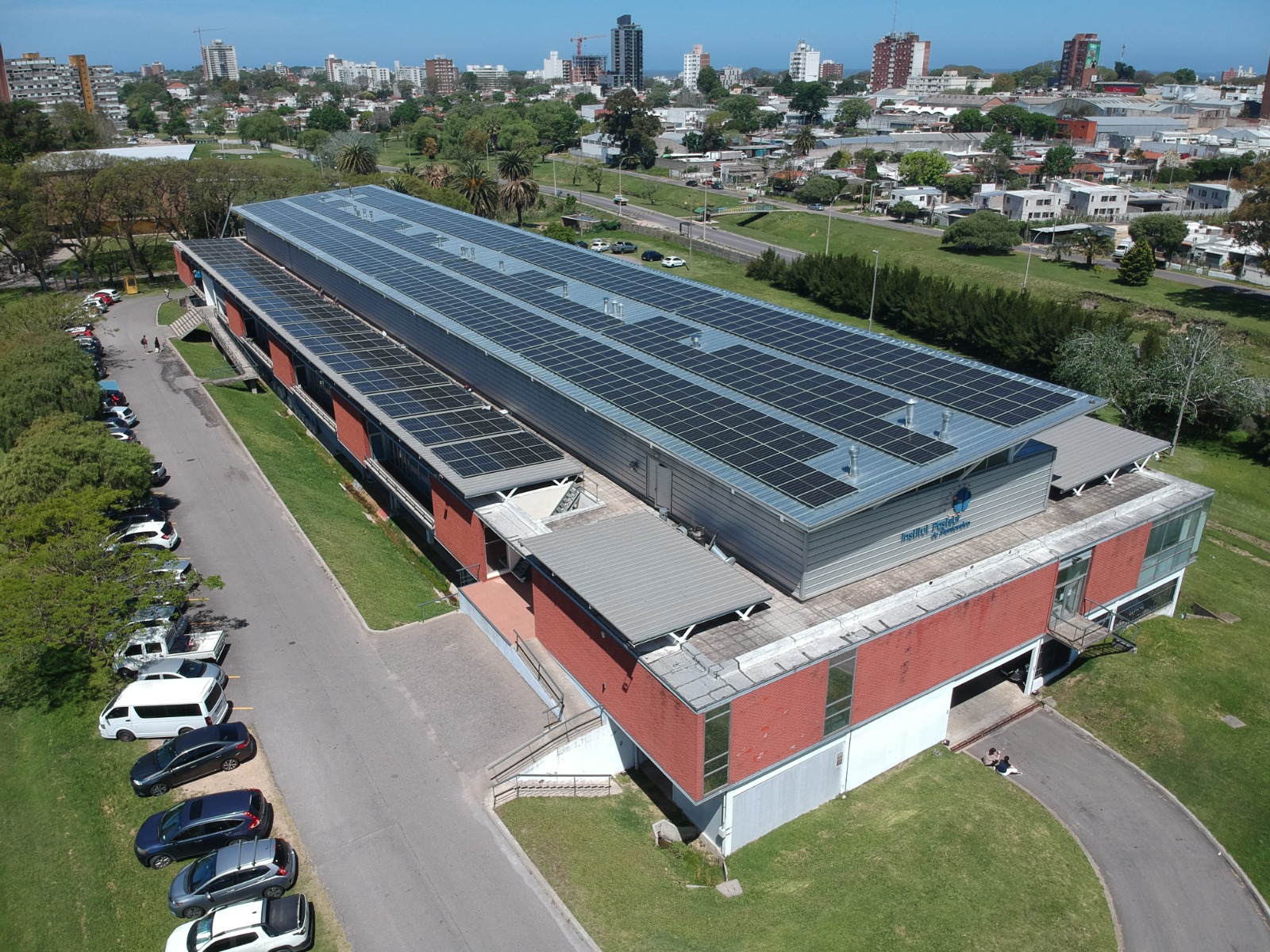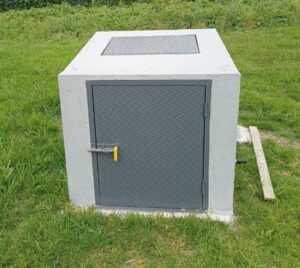Throughout 2023, the Institut Pasteur de Montevideo dedicated to designing and developing four projects that seek energy efficiency and the responsible use of natural resources, with the additional challenge of doing so with the lowest investment.
The projects are the installation of a photovoltaic park, a change in the technology of the thermal system, the construction of its own water well and the extension of the parking area with a method that protects the grass.
Below, we share more information about these initiatives that counted with the active participation of the maintenance team.
Photovoltaic park
Seventeen years after its construction, the institute’s sheet metal roof was showing signs of deterioration and needed to be replaced. In order to take advantage of the work and consider a way to generate renewable energy, the installation of a photovoltaic park was also planned.
From June 28 to November 14, the project included the replacement of the main roof covering and the installation of photovoltaic panels that cover the entire roof and generate a total of 300 KW of power.
It is projected that this summer, the park will produce 35% of the institute’s consumption, which will help to avoid being at the limit of the contracted power, which is 500 KW. The investment was made by a private company and the economic savings -approximately US$ 200,000- will be realized after 12 years of use.
Heating system
Due to the deterioration of the heating equipment of the central platform, a project was advanced to not only upgrade the system but also replace the technology with a more efficient one.
Broadly speaking, this change involves replacing the current system – which extends over the roof of the institute with a network of pipes through which pressurized water circulates and presents some hazards due to its proximity to electrical equipment – with one that will offer greater safety and autonomy for air conditioning in all parts of the institute.
In addition, noise in the administration area will be eliminated since all equipment that generates vibration will be removed and heating gas will be saved.
Qualified companies were contracted for the work, with the support of the maintenance staff in the execution of the masonry work necessary for the placement of the equipment. Some of the work will begin in late January and is expected to be completed in three months. The last stage will include the biotherium.
Water well
At the beginning of the year, due to the water crisis, the Institute commissioned a geological study that identified the existence of a groundwater source with a reasonable flow rate within the property.
Based on this information, drilling was carried out in the southeast corner of the institute’s park to a depth of 53 meters.
According to estimates, the well can generate a flow rate of 6 m³/h, which will cover the maximum hourly consumption recorded at the institute: 5 m³/h. In addition, an 18 m³ reservoir can be maintained as a reserve from which water is pumped for the entire institute.
Samples were then taken and analyzed for metals, hardness, turbidity, pH, coliforms, E.coli, P. Aeruginosa, and heterotrophs to determine water quality. The studies determined that all values were within the current standard, except for the presence of coliforms and heterotrophic counts. To adjust these levels, with the assistance of the Aprahmian company and the knowledge and work of the maintenance team, a UV water filtering system (without chlorine) was built, which also ensures the correct functioning of the most delicate equipment.
After the implementation of this filtering system, new samples were taken and sent to LATU for analysis. The report determined that coliforms were no longer present in the water and heterotrophs were within OSE regulations. Based on these results, on December 6, water from the well began to be injected into the tank and OSE’s water supply was shut off. For the safety of the staff, water quality tests will be performed every three months.
The potable water extracted from this well will supply the institute’s drinking water network, and the untreated water will be used for irrigation of the property.
In one week of drinking water injection, a flow rate of 140,000 liters was recorded. This source change represents savings of US$ 25,000 in water payments.

Expansion of the parking lot
In response to the requirement of the Intendencia de Montevideo to expand the parking area based on the number of cars that the site receives, economical, environmentally friendly and aesthetically correct ways were sought to carry out this task.
The chosen way was to use hollow tiles, special for laying on the ground, which allow the grass to grow. These tiles will be placed on the side of the institute’s entrance road, from the entrance gate to where the parking area currently begins. This work will increase the capacity of the parking area without affecting the landscaping.




